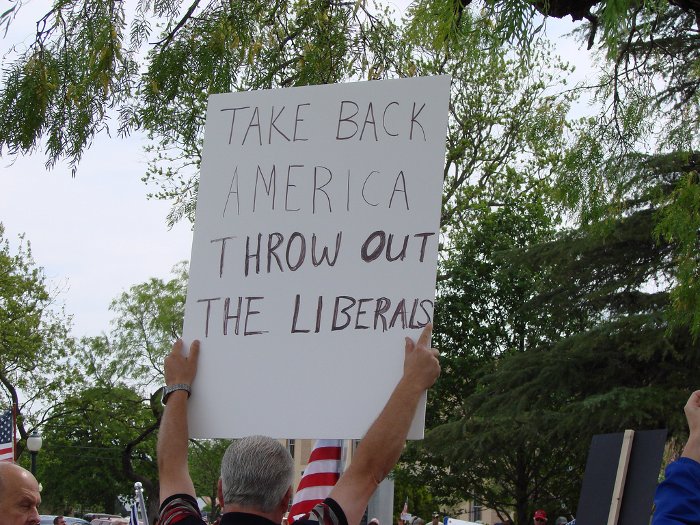Americans don’t claim to be experts on the Tea Party movement, but that hasn’t stopped them from getting behind what they think the movement is about. That’s according to a new poll from Republican pollster McLaughlin conducted for National Review.
About 65% of likely voters said they know just “some” or “not too much” about the Tea Party when asked. Nevertheless, the Tea Party seems to be winning the message war, capturing the voice of populist anger in the country — the majority of respondents expressed support for the goals of the movement and the people in it.
Though the numbers would seem to bode well for the GOP, which is more closely aligned with Tea Party than the Democrats are, the poll could actually cause heartburn for Republicans hoping for big victories this fall. When lined up against a Democrat and a Republican on a generic congressional ballot, 8% said they’d pull the lever for a third, Tea Party candidate enough to give the Democrats the win in a three-way race. The Democrats won the hypothetical matchup 31-26-8, with 35% undecided.
On the message front, the poll showed that Americans are behind the movement as they understand it. Less than 20% of respondents to the poll said the Tea Party is an “anti-government fringe organization driven by anger.” Around 60% said tea partiers are “concerned citizens.”
The poll shows that 52% were sympathetic to the Tea Party’s goals of, as the pollster described it, “protesting deficit spending and Washington’s expanded role in the private sector.” About 6% said they had personally participated in protests. Around 30% said they “did not agree” with the aims of the movement.
The GOP is doing a better job riding the movement’s coattails, according to polling. Late last year, 23% of respondents to a Rasmussen poll said they’d support a Tea Party candidate for Congress. That was enough to beat the generic Republican outright. The McLaughlin poll suggests that efforts by Republican candidates and the Michael Steele-led RNC to embrace the movement have closed that gap, but not enough to prevent Tea Party insurgents from threatening to rain on the GOP’s 2010 victory parade.
National Republicans continue to reach out to the movement, and warn that unless they embrace it, the GOP could be in trouble. In New Hampshire over the weekend, Newt Gingrich told a university crowd that a new “Contract With America” is likely to emerge from the Tea Party movement, and he was excited by the possibilities.
“I see a real sense of community, a very different mood,” he told the Manchester Union-Leader when asked about the Tea Party movement. Gingrich urged Republicans to speak with Tea Partiers and win them over, lest they take their seemingly (according to the McLaughlin poll at least) attractive brand of populism outside the GOP. He told the paper that “if there is any hope” of Republicans knocking off Obama or securing big wins in Congress this year, conservatives will have to “coalesce around” a single candidate.
And last week, newly-minted Fox News political pundit Sarah Palin called on the GOP and the Tea Party movement to “merge,” saying that if Republicans don’t embrace the protesters, tea partiers will not vote with them.
The McLaughlin poll might make that merger easier. The finding that big majorities of Americans are behind what they perceive to be the goals of the Tea Party movement makes the call for Republicans to put the Tea Party in the driver’s seat this year much louder and harder to ignore. As for Democrats, the populist furor makes their election messaging easier, too, as seen by the fiery anti-bank rhetoric in President Obama’s State of the Union Speech last week.
For progressives, the strong support for the tea party movement is less easy to read. Left-leaning groups have long tried to paint the tea parties as essentially an anti-Obama surge with undertones of racism and even McCarthyism. The McLaughlin poll suggests that picture isn’t the same ones the majority of Americans have when they see the tea party faithful marching on Washington.









